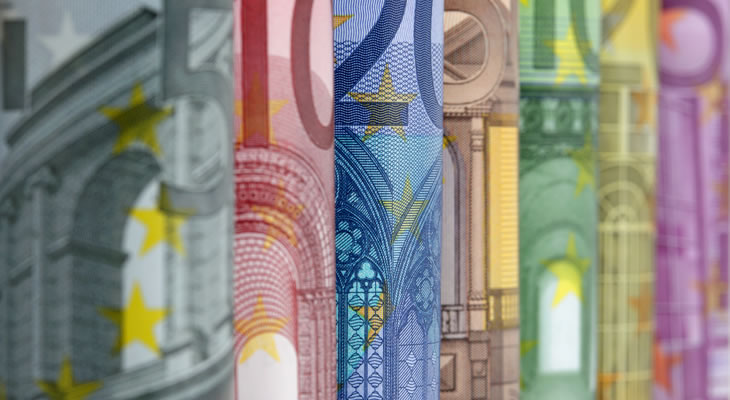The Pound Sterling to Euro (GBP/EUR) exchange rate continued to strengthen on Friday and advanced to 1.31 as data out of the Eurozone confirmed that inflation in the 19-member currency bloc turned negative in December.
Swiss Shocker Weighs on Euro Exchange Rate
Thursday’s shock announcement that the Swiss National Bank slashed interest rates and ended its currency cap against the Euro was also continuing to create volatility in the markets and hammer the single currency lower.
As it reels from the Swiss announcement, the Euro received another kicking at the end of the week as data released by Eurostat confirmed that inflation across the currency bloc slid into negative territory in December.
The Harmonised Index of Consumer Prices dropped by 0.2% year on year in December, reversing the 0.3% rise recorded in the preceding month. The drop was the biggest recorded since September 2009, when prices declined by 0.1%.
On a monthly basis, consumer prices across the currency bloc weakened by 0.1%, a figure that was expected by economists. Core inflation however took economists by surprise by being revised lower from 0.8% to 0.7%. The measure removes volatile items such as energy, food and alcohol and tobacco from the inflation equation.
Last month 16 out of the 19 Eurozone member states reported negative inflation. The lowest inflation rates were reported in Greece, Spain, and Cyprus.
Data out of Germany was not much better as it confirmed that inflation in the region’s largest economy fell to its lowest level in five years after being dragged lower by falling energy costs as oil prices tumbled.
In the whole year of 2014, consumer prices climbed 0.9% versus 1.5% rise in 2013, in line with preliminary figure. The annual average inflation rate has been slowing since 2011. The latest figure was the lowest since 2009, when it was 0.3%.
ECB Likely to introduce QE Programme Next Week
The biggest drag on the Euro however comes from heightened expectations that next week will see the European Central Bank introduce a full-scale quantitative easing programme in order to tackle the threat posed by deflation and try to stimulate growth.
An interim ruling by the European Court of Justice earlier in the week was also seen clearing the way for the European Central Bank to implement quantitative easing measures at its upcoming meeting on January 22.
Worries over next week’s Greek general election are also weighing on the Euro.

